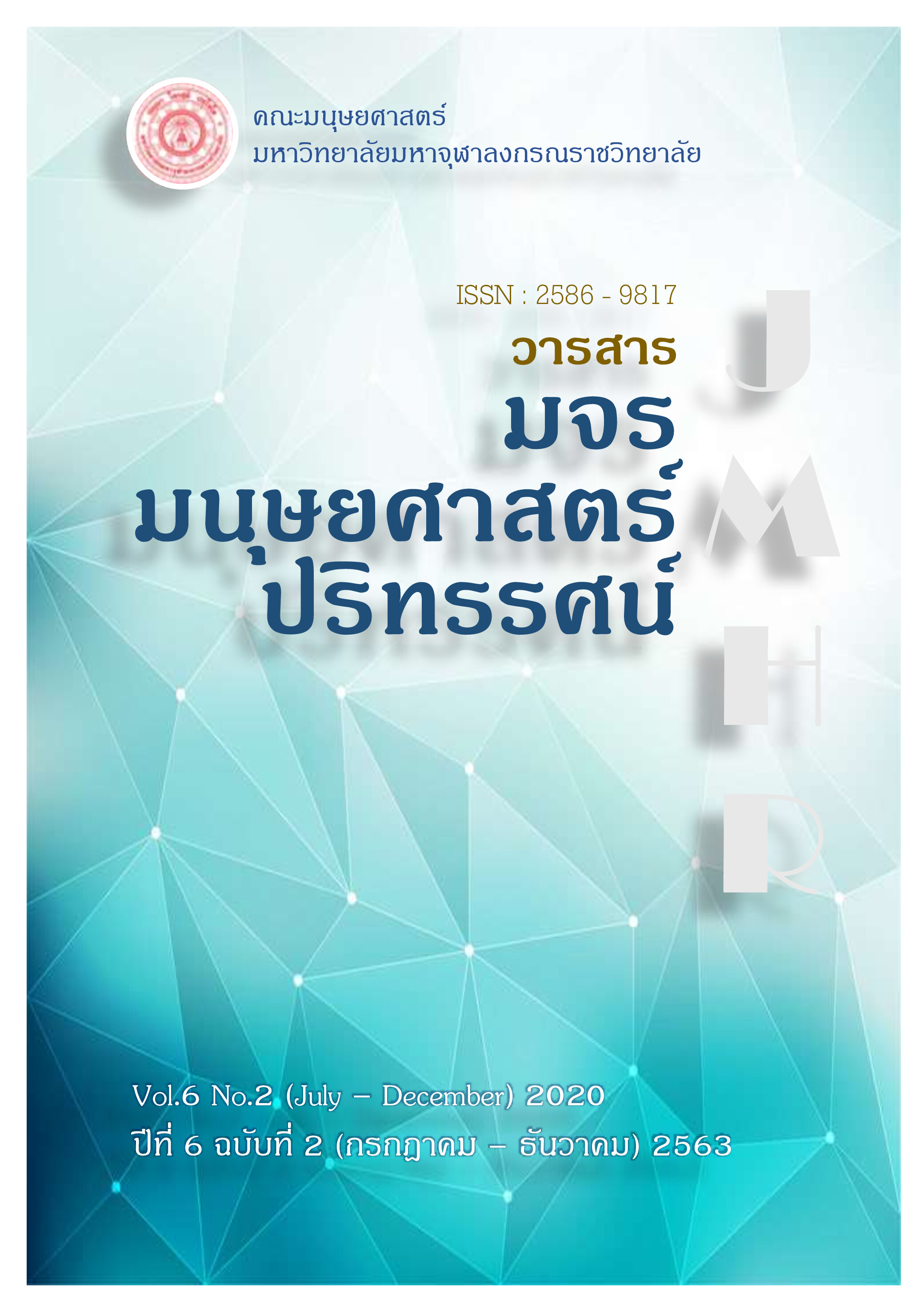รูปแบบการเยียวยาเพื่อเสร้างความเข้มแข็งทางใจตามแนวพุทธจิตวิทยาของสตรีที่ผิดหวังในความรัก
คำสำคัญ:
ความเข้มแข็งทางจิตใจ, พุทธจิตวิทยา, ความผิดหวัง, ความรักบทคัดย่อ
การวิจัยนี้เป็นการวิจัยเชิงคุณภาพเชิงเอกสาร (Documentary Research) และการสัมภาษณ์ผู้เชี่ยวชาญด้านพุทธศาสนาและจิตวิทยา โดยมีวัตถุประสงค์ 1) เพื่อศึกษาหลักการเยียวยาจิตใจของสตรีที่ผิดหวังในความรักตามแนวคิดพระพุทธศาสนาและแนวคิดทฤษฎีตะวันตก 2) เพื่อศึกษาหลักธรรมทางพระพุทธศาสนาในการส่งเสริมความเข้มแข็งทางใจของสตรีที่ผิดหวังในความรัก และ 3) เพื่อศึกษารูปแบบการเยียวยาเพื่อเสริมสร้างความเข้มแข็งทางจิตใจตามแนวพุทธจิตวิทยาของสตรีที่ผิดหวังในความรัก 4) เพื่อนำเสนอรูปแบบการเยียวยาเพื่อเสริมสร้างความเข้มแข็งทางจิตใจตามแนวพุทธจิตวิทยาของสตรีที่ผิดหวังในความรัก
ผลการวิจัยพบว่า
1. หลักการเยียวยาจิตใจของสตรีที่ผิดหวังในความรักตามแนวคิดพุทธศาสนาและแนวคิดทฤษฎีจิตวิทยา โดยพบว่า ทฤษฎีจิตวิทยาตะวันตกเน้นการให้ความช่วยเหลือผู้ที่มีความทุกข์ ส่วนหลักการเยียวยาทางพระพุทธศาสนาเน้นการพัฒนาตนเองในการใช้ชีวิตอย่างถูกต้อง
2. หลักธรรมทางพระพุทธศาสนาในการส่งเสริมความเข้มแข็งทางใจของสตรีที่ผิดหวังในความรัก คือ โลกธรรม 8 พละ 5 และไตรสิกขา
3. รูปแบบการเยียวยาเพื่อเสริมสร้างความเข้มแข็งทางจิตใจตามแนวพุทธจิตวิทยาของสตรีที่ผิดหวังในความรัก ผู้วิจัยนำเสนอเป็น 4 ประเด็นคือ 1. มุมมองต่อความสำคัญของความรักกับชีวิต 2. ความรู้ความเข้าใจเกี่ยวกับความรักของชายหญิง 3. สาเหตุของการผิดหวังในความรักของสตรีและผลกระทบที่มีต่อชีวิต 4. กระบวนการสร้างความเข้มแข็งในการเยียวยาจิตใจตามแนวพุทธจิตวิทยา
4. ผลการนำเสนอรูปแบบการเยียวยาเพื่อเสริมสร้างความเข้มแข็งทางจิตใจตามแนวพุทธจิตวิทยาของสตรีที่ผิดหวังในความรัก ด้านการประเมินความตรง ความเที่ยงและการตัดสินโดยผู้เชี่ยวชาญ พบว่า ทุกประเด็นอยู่ในระดับดี
เอกสารอ้างอิง
ทิพาวรรณ บูรณสิน. (2015). นิยามรัก 2015 (สุขภาพดีเริ่มต้นที่นี่). กรุงเทพมหานคร: กรมสุขภาพจิตกระทรวงสาธารณสุข.
เทวิกา ประดิฐบาทุกา. (2562). เรื่องราวของความรัก. สืบค้น 26 เมษายน 2562, จาก https://www.gotoknow.org/posts/561277
พระธรรมปิฎก (ป.อ.ปยุตฺโต). (2540). ถึงเวลาพัฒนาคนกันใหม่. กรุงเทพมหานคร: โรงพิมพ์ธรรมสภา.
พุทธทาสภิกขุ. (2555). คู่มือมนุษย์ (ฉบับสมบูรณ์). กรุงเทพมหานคร: สำนักพิมพ์ธรรมสถาพร.
มณฑิรา พรศาลนุวัฒน์. (2547). เอ็นโดฟินส์ สารแห่งความรัก บำบัดโรค. กรุงเทพมหานคร : โรงพิมพ์ฐานการพิมพ์.
อัจฉรา สุขารมณ์. (2559). การฟื้นฟูพลังใจในภาวะวิกฤต Resilience Quotient: RQ. วารสารสันติศึกษาปริทรรศน์ มจร, 4(1), 103-119.
Grotberg E. H.. (1995). A guide to promoting resilience in children : Strengthening the human spirit. Netherlands : The Bernard Van Leer Foundation.
Sternberg Robert J.. (2004). “A Triangular Theory of Love”. In Reis. H. T.; Rusbult. C.E. Close Relationships. New York: Psychology Press.






